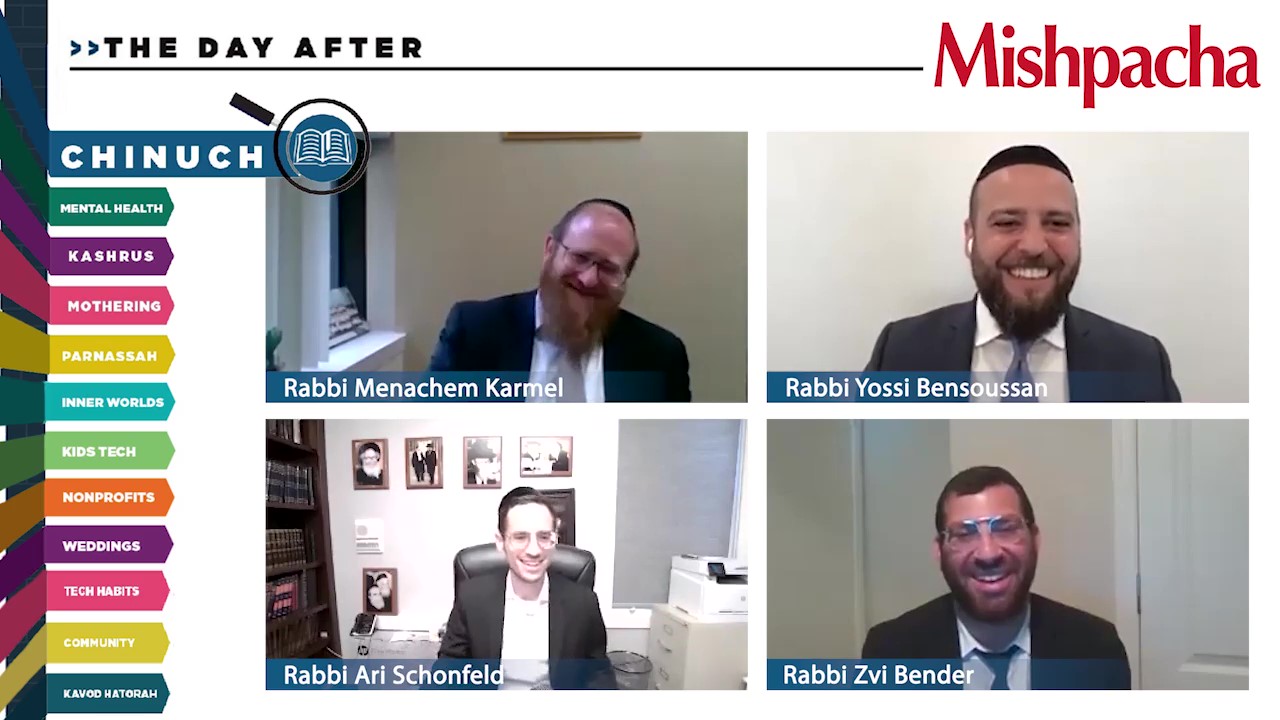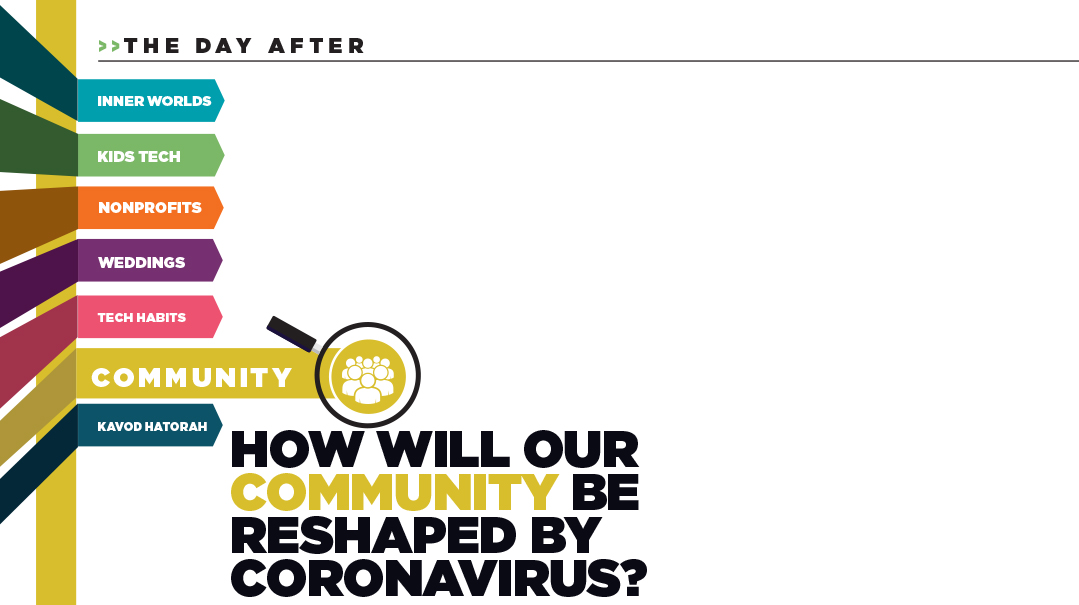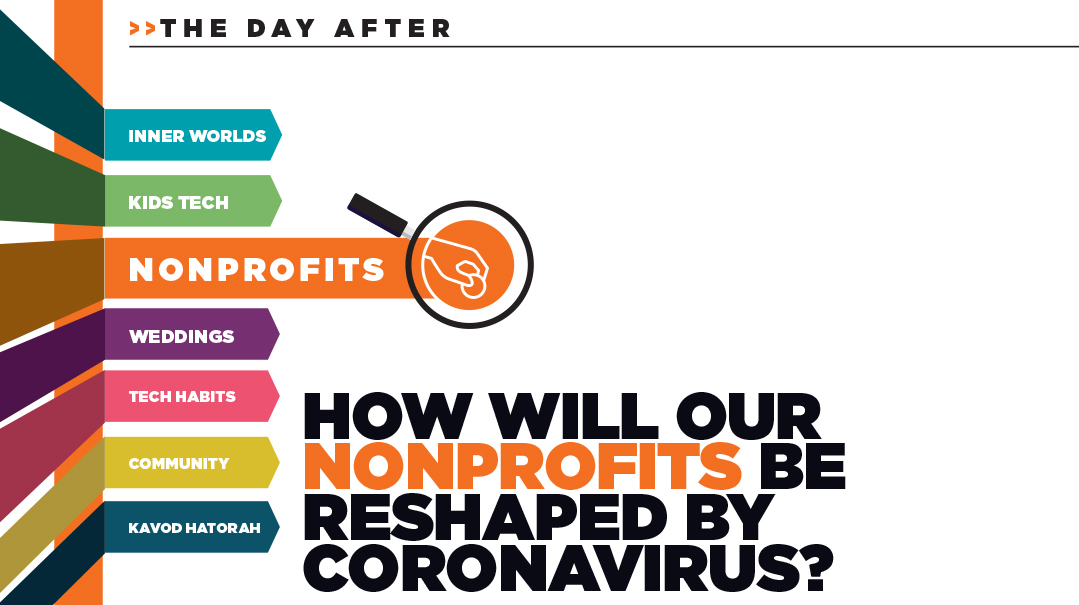How will our weddings be reshaped by coronavirus?
| May 20, 2020
Less than three months after the virus hit our community, people from coast to coast and everywhere in between have signed up for this kabbalah

As told to Sandy Eller
I’m one of your fellow Jews living in Flatbush. Over the years I’ve made simchahs and attended simchahs. It was over ten years ago that I found myself growing increasingly troubled by the weddings I was seeing all around me. Elements of our simchahs had swelled far out of proportion and what was once considered extravagant, I realized, is now considered de rigueur. Expensive floral backdrops, large orchestras, name-brand singers, and couture gowns had once been the province of the truly wealthy. Now they are considered, by a large swath of our community, to be “standard.”
I noticed something else as well. The price for these newly inflated must-haves is incredibly costly, and incredibly painful. I started hearing of men who were literally collapsing because of financial stress, shalom bayis issues among those who needed to “keep up with the Cohens,” and shocking amounts of money being wasted, often by those who didn’t have any extra cent to spare.
Our weddings, I realized, have become showcases of peer pressure, symbols of excess and vehicles to perpetuate illusions of wealth. And the pure simchah of marrying off a child has been eclipsed for far too many people by worry and crushing stress.
Those scenes of incredible excess along with my knowledge of the terrible price gave me no rest, and with every passing month, I grew more determined that something had to be done. Surely, with thought, effort, and consideration, our community could reevaluate what it meant to make a respectable wedding.
Together with my chavrusa, I put together a set of chasunah guidelines that I hoped would streamline our weddings and lower the financial pressures that often overshadow what should be an event of unparalleled joy.
I knew this idea would be uncomfortable for those who wanted to make their dream weddings a reality, but I felt it was important to take a stand and do something for ourselves and our children, something that would benefit all of Klal Yisrael.
Our initial guidelines were by no means set in stone, but they recommended making the l’chayim and/or vort a family affair in the home, sans party planners or musicians. Similarly, the wedding meal would be limited to close family, with friends invited only for dessert; and flowers, music, liquor limited to a tasteful but simpler standard.
My rav, Rav Doniel Asher Kleinman, is a talmid muvhak of Rav Shmuel Kamenetsky and he set up an appointment for us to discuss these guidelines with the Rosh Yeshivah. My chavrusa and I traveled to Philadelphia to get Rav Shmuel’s approval for our plan and we discussed various issues, including the idea that some businesses would be curtailed or even eliminated by these guidelines, with Rav Shmuel agreeing that these steps were both necessary and appropriate.
Next came the hard part — taking this initiative to the people. It’s hard to change an entrenched community standard, so I decided to start at the top, approaching specifically those people who could afford elaborate weddings. I asked them to commit to simpler affairs, knowing if they set the tone, others would follow, alleviating the pressure on those of more modest means.
I wish I could say that everyone agreed with my assessment and signed on, but that’s not what happened. Some people didn’t agree that our weddings were over the top and others felt that there were more pressing issues that needed to be addressed. Suffice it to say it was a tough sell and it wasn’t being embraced exactly the way I had hoped. The time just didn’t seem right.
Then coronavirus struck. Suddenly chasunahs were being held in backyards, with only a handful of people joining in. People were engaging in serious soul-searching, and I knew the time was right to reopen the conversation on how our simchahs were being conducted. Faced with tragic deaths, terrible sickness, and serious financial devastation, coronavirus had us all contemplating what really matters in our lives, and suddenly charcuterie boards and string quartets just weren’t all that important anymore.
Unbeknownst to us, another askan had been working on a similar concept and had been speaking with Rav Yisroel Reisman. After hearing about our initiative, he arranged for us to speak to Rav Reisman, who advised us to drop the details about flowers, music, and liquor and instead keep things simple by limiting the wedding meal to a suggested 250 invited guests, the vast majority of whom would be family members. Friends, neighbors, and everyone else could be invited to share in the simchas chassan v’kallah afterward.
Rav Elya Brudny and Rav Moshe Tuvia Lieff both gave their haskamos to the newly titled Simcha Initiative, which also eliminated elaborate vorts, and in its first few weeks we had over 800 people signing on, committing to making simpler weddings and setting a new standard in our communities.
Rav Reisman sees the initiative not as a takanah — takanos haven’t had much success in our community — but rather as a kabbalah, to be undertaken by those who feel this specific plan can work well for their needs.
We’ve gotten complaints about the specifics of the plan: Some people say it doesn’t go far enough, others say the specific clauses don’t work for their particular circumstances. The main thing, as we see it, is the underlying commitment to simplify our simchahs. When you get there, you can work out the details. Understandably, different families have different considerations and sensitivities, and the number 250 may very well not be realistic or practical for those with large families. And when making a wedding, there is always another side involved — a side that may have different calculations and different expectations. So one blanket solution is not likely to work for all.
That said, the concept of reevaluating what a Jewish wedding should — and shouldn’t — be is something that applies to many people in our community, no matter how they translate it into action. As Rav Reisman told us, no “elaborate” vort obviously means different things to different people. That is fine. The goal is an attitude of knocking things down a notch or two — or three or four.
Less than three months after the virus hit our community, people from coast to coast and everywhere in between have signed up for this kabbalah, with over 1,400 commitments coming from five different continents. Obviously, right now it’s too early to predict how those commitments will play out; weddings are still severely restricted under the quarantine guidelines, so these plans are still in the realm of the theoretical. But with the hope that soon it will be safe to make weddings, and the signatories can keep to their commitments, do the math: If each of those people makes just one wedding and saves $15,000 on their simchah, $21 million dollars will be saved — and with the average person making three, four, five, six, or more weddings, staggering amounts of money will be saved.
Seventy years have passed since the greatest churban our nation has ever experienced and after the war, there was no greater simchah than seeing a couple getting married. People had a genuine and justifiable desire to celebrate those wedding in high style. But as our expectations grew and the list of “must-haves” swelled, we seem to have lost our way. Perhaps the coronavirus outbreak will finally get us to hit the reset button, something we desperately need.
Looking to the future, will our communal standard for “a beautiful simchah” change? It’s hard to know. In many ways, it will be easier to fall back to the familiar template. Change takes work. It takes vision and commitment, sacrifice and grit. But judging from the number of people who are truly open to reimagining their simchahs, and the number of people who’ve already taken the step of signing on to a plan that gives clear dimensions to that goal, I truly believe we’re on our way.
Shaul C. Greenwald, Esq. is the CEO of Riverside Abstract, and a Flatbush resident. He and his wife, Faigie, are the proud parents of five children.
(Originally featured in Mishpacha, Issue 811)
Oops! We could not locate your form.








Comments (0)